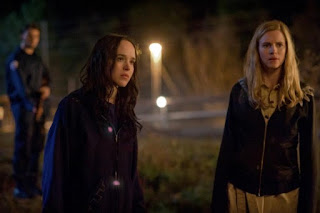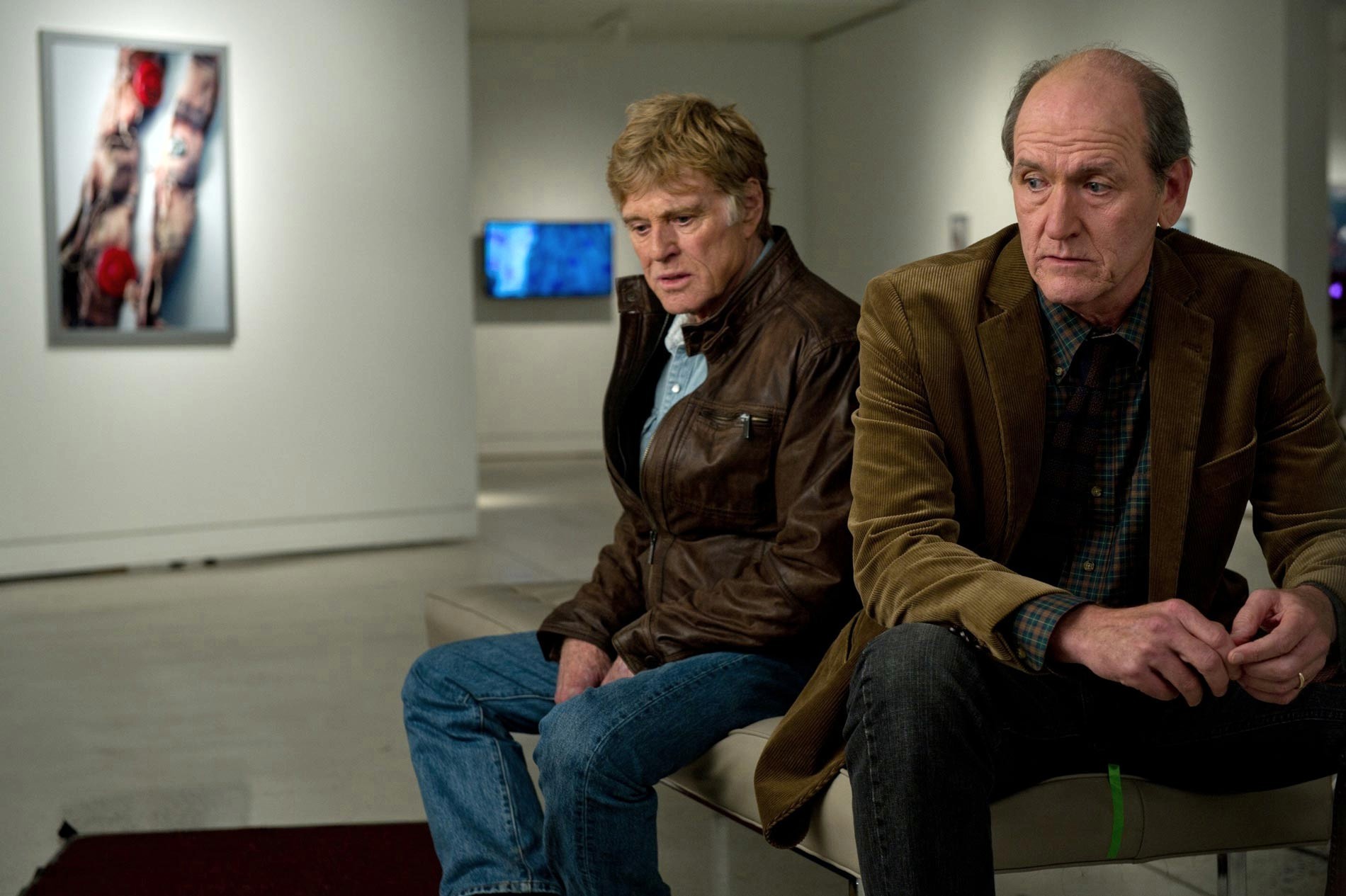Director: Zal Batmanglij
Runtime: 116 minutes
Cults are all the rage these days in the entertainment world. On the small screen, Fox's The Following proved to be a major hit. On the big screen, Sean Durkin's Martha Marcy May Marlene lit up indie theaters as well as the festival circuit. And, last year, burgeoning indie It Girl Brit Marling, along with director/co-writer Zal Batmanglij, tackled cults in the micro budget thriller Sound of My Voice. That film, Marling's sophomore effort as both an actress and writer, was not exactly a break out hit, but it did push the writer/actress ever closer to the first stages of stardom. Now, roughly a year later (and with some major backers), Marling and Batmanglij have returned to the territory of their first collaboration. A sequel to Sound in spirit, The East marks another interesting evolution in Marling's career, even as it suffers from a handful of significant setbacks.
Marling's position on camera is flipped around with this latest effort. Sound cast her as a supporting role as a mysterious cult leader. Now, she plays Jane, an intelligence operative for a private firm. Jane's boss, Sharon (an underused Patricia Clarkson), gives her a major, and highly coveted, assignment: to infiltrate and dismantle a growing eco-terrorist collective known as The East. The group, headed by the mysterious Benji (Alexander Skarsgaard), targets CEO's of companies that sell harmful pharmaceuticals or damage the environment via their factories. Yet rather than stage protests or carry out bombings, The East's MO involves giving the responsible individuals an ugly taste of their own medicine (sometimes rather literally).
And, before too long, The East's similarities with the cult from Sound of My Voice arise. Bizarre (but harmless) rituals and anti-consumerist lifestyles permeate the group's compound, even as they plan their violent acts of retaliation. Even as Jane struggles to fit in and earn her place, she gradually earns their trust, up to the point where they take her along for a mission. As Jane spends more time with The East, her periodic visits back home start leaving her less satisfied. The group's methods make her uneasy, yet she can't exactly deny the grains of truth in their ideology.
Yet, once again, Marling's (and Batmanglij's) ambition has outstripped her execution, and not just behind the camera. Sound of My Voice found a perfect vehicle for Marling's gifts as an actress. There's a certain sleepy reserve to her screen presence that was well matched to her role as cult leader. She started off sounding merely dippy, yet gradually revealed herself as a skilled manipulator of the weak-minded and gullible. As the investigative force in The East, however, there appears to be some disconnect. From what we're told, and what the actions suggest, Jane is a quiet, steely, resourceful, and driven individual. Though she loves her boyfriend (Jason Ritter), when she needs to go to work, she can flip the switch in a heartbeat. But for all that we're told, and even shown, Marling can't quite seem to shake the sleepiness from her performance. The role, for the first half, requires the same sort of stern grit that Jodie Foster brought to Clarice Starling, and Marling can't seem to muster up the necessary alertness.
The supporting cast, thankfully, all seem quite game in their roles, as thin as they are. Ellen Page stands out nicely as an increasingly radical member of the collective with a surprising past. It's the sort of role that allows the actress to firmly dispel the idea that she's only cut out for characters in quirky indie comedies. Alexander Skarsgaard and Toby Kebbell have nice moments as well, even though the former is never quite as magnetic a leader as the one from Marling and Batmanglij's first outing. Yet neither actor is served well by the writing. Skarsgaard is given a tragic past that feels empty, at best, while Kebbell's background is used more for exposition and forwarding the plot. Meanwhile, Patricia Clarkson isn't given nearly enough to do, rendering Jane's growing conflict hugely unbalanced.
Even though The East comes with bigger production values and some talented actors, it doesn't quite stick the landing in one key area that Sound of My Voice nailed, and that's the cult itself. The sense of intrigue and danger never fully connects, even with all of the rituals depicted. Sound built more suspense out of the repeated scenes of a ritual handshake than The East accomplishes with its more hazily sketched routines. When the film builds to its bigger moments, Batmanglij manages to pull it off, but the writing is constantly letting down the atmosphere (which receives a nice boost from the dynamic score).
The film's handling of issues also can't help but feel rather thin as well. Even without succumbing to lengthy monologues, the film could have engaged with its ethical issues with greater insight. That missing insight only makes the titular collective more generic. These issues are not helped by the film's final 20 minutes, which rushes through a number of developments in order to set up its open-ended (and rather pat) conclusion. Somewhere in The East are the seeds of a great, morally complex thriller, one that Marling and Batmanglij will hopefully make in the near future. As the next step in the pair's evolution as storytellers, however, it can't help but come up short, even with its more polished aesthetic. The East has competence to spare, yet not nearly enough that is truly exceptional.
Grade: C+




